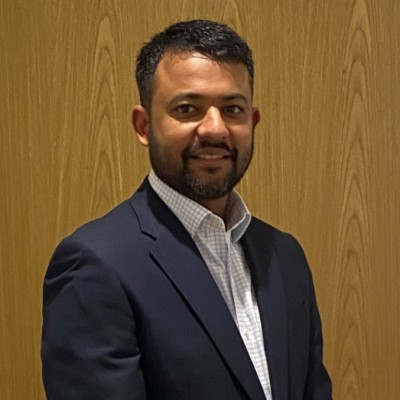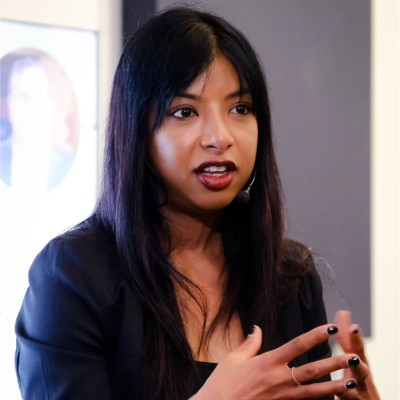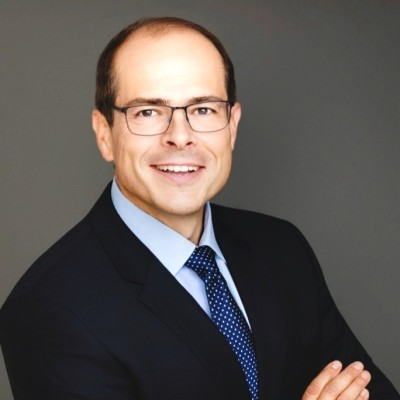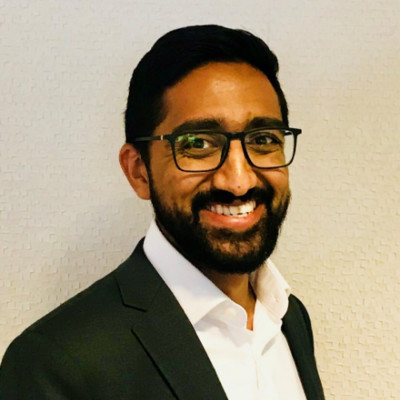Future of Finance Exchange - Day 2
7:45 am - 8:30 am
Event Registration & Breakfast
8:30 am - 8:40 am
Exchange Day Two Welcome and Chairperson’s Opening Remarks
John Hall -
Former Head of Finance at Bunzl and Co-Founder & COO of Triangular World,
Future of Finance Chairperson

John Hall
Former Head of Finance at Bunzl and Co-Founder & COO of Triangular WorldFuture of Finance Chairperson
8:40 am - 9:10 am
Keynote Panel - From Reactive Reporting to Predictive Finance – The Future of Forecasting & Analytics
Akash Jalan -
Global Head FP&A,
JLL
Rabi Patro - VP Finance Business Partner – International Corporate Banking, Barclays
How advanced analytics and agile planning unlock clarity in an uncertain world
9:10 am - 9:55 am
Keynote Panel - The Strategic CFO – Influence, Resilience, and Leadership in the Age of Constraints
Billie O'Connor -
CFO,
Mulberry
Sharon Naidoo - Chief Financial Officer - UK and Europe, TransUnion
Raphael Savalle - CFO, Montblanc
Vivek Patankar - Divisional CFO, ConvaTec
Dennis Sasse - Group Finance Director, F. Hoffmann-La Roche Ltd, Roche
The CFO role has shifted decisively from financial steward to strategic co-pilot of growth. Today’s finance leaders must deliver more with fewer resources, balance permanent uncertainty with long-term value creation, and lead teams through cultural and technological transformation. Drawing on perspectives from Advisory Board members, this panel explores how CFOs are building influence across the C-suite and beyond, developing the leadership skills that matter most, and preparing finance organisations for the next decade.
Discussion themes:
• CFO as co-pilot: Building trust and influence with the CEO, board, and executive peers
• Doing more with less: Leading with credibility under budget, talent, and technology constraints
• Always-on crisis mode: Balancing short-term performance with courageous long-term investments
• CFO as coach: Inspiring teams, modelling behaviours, and embedding growth mindset cultures
• Stakeholder management excellence: Leading across IT, operations, and business units
• Trust and values-driven leadership: Meeting ESG and regulatory expectations while maintaining investor and employee confidence
• Leadership development: Soft skills, resilience, and communication as differentiators for CFOs preparing for CEO-level roles
9:55 am - 10:25 am
Plenary - Finance as Data Steward – The Quality Imperative Behind AI, ESG, and ROI
Finance leaders are becoming the custodians of enterprise data, ensuring accuracy and integrity across financial, operational, and sustainability reporting. As AI and ESG converge, finance must guarantee that the data fuelling decision-making is trustworthy, auditable, and value driven. This session uncovers how CFOs are embedding data governance principles across finance, technology, and sustainability ecosystems.
For data, analytics and compliance partners enabling trusted, high-quality data across finance and sustainability reporting.
10:30 am - 11:00 am One-to-one Business Meetings | Peer-to-peer Networking
11:05 am - 11:35 am One-to-one Business Meetings | Peer-to-peer Networking
The finance function is evolving faster than ever, as automation is reshaping workflows, AI is redefining analytical capabilities, and teams are being asked to do more with less. Yet amid this transformation, one truth remains: people are still the greatest source of competitive advantage.
This session explores how women in senior finance roles are leading this evolution, not through quotas or policy statements, but by redefining what effective leadership looks like in an era of continuous change. From developing talent when traditional pathways are disappearing to creating inclusive, high-performance cultures where diverse perspectives thrive, we’ll examine the new human capital playbook for finance leaders.
Key Discussion Points:
• Human capital in the AI era: How finance leaders build skills, confidence, and purpose when automation removes traditional training grounds.
• Future leadership capabilities: Which mindsets, behaviours, and emotional intelligence traits define successful leaders in the next decade.
• Inclusive leadership in action: How diversity of thought drives better decision-making and resilience during transformation.
• Talent and capability development: Building advancement pathways in leaner, flatter finance organisations.
• Culture as a growth driver: Creating psychologically safe, performance-driven environments that attract and retain the best talent.
• Personal leadership evolution: How senior women are navigating influence, visibility, and impact at the board level.
This discussion moves beyond representation to explore how finance leaders - particularly women - are redefining leadership, human capital, and culture for a new era of transformation.
The financial close remains one of the most complex and risk-sensitive processes in finance — but automation, AI, and continuous control monitoring are redefining what “month-end” means. This practical session explores how finance leaders are applying autonomous close technologies to eliminate manual reconciliations, accelerate reporting, and strengthen control without sacrificing assurance. Participants will see how automation platforms deliver measurable ROI while freeing teams to focus on analysis and strategic insight.
For automation and ERP partners showcasing solutions that deliver a faster, error-free, and audit-ready close.
11:40 am - 12:10 pm
Plenary - Propelling Transformation Amid Volatility – Building Confidence, Visibility, and Long-Term Performance
Bharadwaj Raghavendran -
Global Manager - Retail Strategy & Pricing,
The Heineken Company
Volatility is no longer a phase to navigate; it’s the context in which finance must now operate. In this session, we explore how finance transformation can turn uncertainty into an advantage by strengthening visibility, resilience, and decision confidence. Drawing on experience leading commercial finance transformation within global operations, we’ll examine how finance can focus on what it knows, manage what it can control, and build repeatable change capabilities that sustain long-term business performance in an unpredictable world.
Key Takeaways:
• Treating volatility as a constant: Building finance functions designed to adapt and evolve
• Improving visibility through complexity: Making faster, more confident decisions with incomplete information
• Managing known risks and preparing for unknowns through stronger governance and data clarity
• Embedding transformation as a continuous capability, not a one-time initiative
• Redefining finance’s role from control to enablement in an era of perpetual change
12:10 pm - 12:40 pm
Plenary - The CFO–CEO Partnership: Driving Enterprise Transformation from Consolidation to Resilient Growth
Carl Rogberg -
Group CFO,
Oriflame Cosmetics
For CFOs steering companies through major transitions, transformation is rarely linear. After external shocks reshape markets, the path from stabilisation to growth demands patience, clarity, and partnership at the highest level. This session explores how the CFO and CEO partnership can redefine an organisation’s future, rebuilding financial resilience, restoring credibility, and preparing the foundations for renewed growth. This session will examine how finance can lead from the front during consolidation, align boards and teams around a shared direction, and sustain momentum when transformation proves slower and harder than expected.
Key Takeaways:
• Building alignment with CEOs and Boards during multi-year transformation and recovery cycles
• Translating financial stability into a platform for sustainable growth and renewed confidence
• Balancing cost discipline with targeted investment in future value drivers
• Managing the realities of transformation fatigue while keeping teams focused and engaged
• Strengthening finance’s strategic role as both stabiliser and growth catalyst
12:40 pm - 1:10 pm
Plenary - Beyond Automation: Building the Intelligent Finance Function of the Future
As CFOs seek measurable ROI from digital investments, the focus is shifting from individual tools to end-to-end intelligence. Finance leaders want to connect automation, analytics, and AI into a unified ecosystem that frees capacity for strategy, improves accuracy, and accelerates decision-making.
This session explores how finance functions are moving from efficiency experiments to enterprise-wide intelligence, and blending process excellence, human-AI collaboration, and continuous simplification into one scalable framework.
For AI, automation and ERP leaders demonstrating how integrated intelligence transforms finance into a strategic value engine.
1:10 pm - 2:10 pm
Networking Lunch Day 2
Nearly there! Get Ready for the Final Stretch of the Exchange with our Last Keynotes and Roundtables This Evening.
Delivering transformation is rarely about big budgets or perfect timing. Finance leaders are under pressure to modernise processes and systems while keeping the business running — often with limited resources, competing priorities, and cultural resistance. This closed-door session, under Chatham House rules, offers a candid space to exchange practical lessons on how to make change happen in the real world.
Discussion themes:
• Building the case for transformation: How to secure executive and board buy-in without big spend
• Overcoming inhibitors: Dealing with cultural resistance, bandwidth challenges, and change fatigue
• Lean transformation: Delivering meaningful impact on limited budgets
• Balancing short-term pressures with long-term transformation goals
• Peer lessons: What worked (and didn’t) in recent finance transformation initiatives
When volatility hits, cash becomes every CFO’s most strategic asset. This interactive session explores how finance leaders are sharpening liquidity visibility, improving cash forecasting, and unlocking working capital to protect growth and resilience. Participants will compare approaches to cash discipline, receivables optimisation, and supply chain finance — identifying immediate wins and longer-term structural improvements.
For treasury, FP&A and cash management partners helping finance leaders optimise liquidity, working capital and cash forecasting in volatile markets.
3:25 pm - 3:55 pm
Plenary Panel - Beyond Compliance – ESG as Strategic Value and ROI in Uncertain Times
Raphael Savalle -
CFO,
Montblanc
Kai Zinn - Senior Vice President of Sustainability Management, Merck KGaA
As ESG expectations evolve, finance leaders are shifting from compliance to value creation, turning sustainability into a driver of resilience, capital efficiency, and competitive advantage. This session examines how leading organisations are integrating ESG into core strategy, linking sustainability outcomes to measurable ROI, and aligning financial planning with long-term stakeholder value.
Updated Discussion Themes:
• Year one of CSRD: Lessons learned from reporting, assurance, and audit reviews
• Building the ROI case: Quantifying ESG-linked risk, opportunity, and capital allocation
• From compliance to performance: embedding ESG into budgeting, forecasting, and investment models
• Customer-driven sustainability: How demand across the value chain reshapes finance priorities
• Avoiding the credibility gap: managing greenwashing and greenhushing risks
• Integrating ESG data with financial and operational KPIs
• Investor and lender perspectives: how finance can lead credible, performance-linked ESG narratives
• What “good” looks like: peer insights on effective ESG governance and resource allocation

























